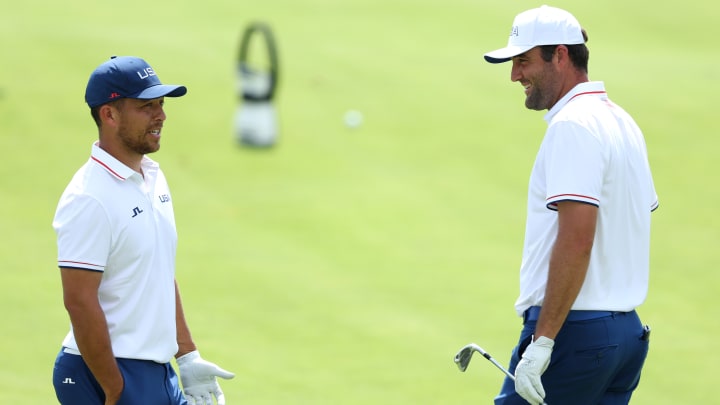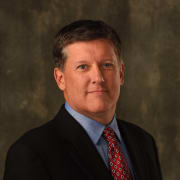Olympic Qualifying Is Questioned As Golf's Years of Strife Land in Paris

SAINT QUENTIN-EN-YVELINES, France — Men’s professional golf has endured its share of controversy over the past two years and so it is only fitting that some of the same laments would surface at the Olympic Golf Tournament.
And given that the Olympic Games themselves are seemingly always rife with some sort of strife, it makes sense that such concerns would also drift away from the Paris Olympic Village out to the golf venue near Versailles.
It is the qualification system for the 60-man field that has come under scrutiny this week, borne of course out of the emergence of the LIV Golf League and its lack of accreditation by the Official World Golf Ranking.
It’s the same system that determines who competes in the Olympic golf event that begins Thursday at Le Golf National. (Click here for tee times.)
“It’s just the situation in golf right now, it’s unfair,” said Carlos Ortiz, who is representing Mexico along with Abraham Ancer. Both play for LIV Golf. “Especially Olympic Games, you want to have the best golfers right here, but politics somehow manage things still.
“I still feel there’s golfers that should be here and couldn’t be here because of what has happened. I think the Olympic Games definitely should be neutral. They should have not turned away ranking players accordingly, especially now that the World Ranking points don’t really work anymore.”
There’s a lot to unpack there, so let’s dig in.
> Back in 2009, when golf’s leaders were pitching the sport to be included in the Games, there were no guarantees. At an October 2009 meeting, the International Golf Federation brought Padraig Harrington, Michelle Wie and Suzann Pettersen to Copenhagen for a final pitch and had videotaped messages from Tiger Woods and Ernie Els, who were playing in the Presidents Cup that week in San Francisco.
The IGF wanted the International Olympic Committee to know that the game’s stars were on board. And they were. But, they all advocated for a format they were familiar with: 72-hole stroke play.
> Don’t blame the players. Although that might be their preference, the IOC has long held that Olympic sports should adhere to a format used to determine the winners of other high-end competitions. Hence, the same format we see constantly. How much the IGF has lobbied them on other format is unclear.
Also, the IOC is obsessed by capping the field size due to lack of space in the Olympic Village for athletes—even though virtually no golfers, especially the elite of the elite, will stay there. Going to at least 78 players—which is more than manageable for a no-cut event, seems far more prudent, especially when the venue is nowhere near the Olympic Village. A majority if not all of the players are staying in private accommodations or hotels.
> Then there’s the qualification system. From the start, the IGF went with OWGR, stipulating that the top 15 individuals in the OWGR at a cut-off point that included a two-year qualification period would automatically qualify, with no more than four per country and no more than two per country beyond that.
That is why just 10 of the top 15 players in the current OWGR are in the field, including all of the top seven.
That system has been used for all three of the competitions since golf returned to the Games in 2016 without much incident. The qualifying period for the 2024 Olympic golf began the week after the U.S. Open won by Matt Fitzpatrick.
LIV Golf had played one event to that point.
The obvious omission from this week’s tournament is Bryson DeChambeau, who was well outside the top 200 in the OWGR before tying for sixth at the Masters, finishing second to Xander Schauffele at the PGA Championship and then winning the U.S. Open—in the final qualifying week.
DeChambeau moved up to 10th in the OWGR after his victory but that only left him as the sixth American behind Scottie Scheffler, Schauffele, Wyndham Clark, Collin Morikawa and Patrick Cantlay. In the past two years, DeChambeau has played in just 10 qualifying events.
Had he been earning any level of points via LIV Golf, he quite likely would be among the top four Americans and competing for a gold medal this week.
Understandably, this has caused a good bit of angst and led to conjecture that the qualifying process be changed.
“I think it would be great if the countries can get to pick who they bring and just be like, ‘hey, these are the guys that we believe have a chance to win a medal,’ or ‘this is the guys that I want to bring,” Ancer said. “Maybe that would be a way to fix it. It’s not going to be easy. Not everybody is going to be happy.”
No doubt. But it’s true that other Olympic sports have qualification criteria that vary by country.
“I think you can always do it, like with other sports, and allow the countries to pick themselves,” Jon Rahm said. “There needs to be some guidelines, but like Team USA Basketball has freedom to choose whoever they want.
“I understand it's a different circumstance, but I think you need to let each country choose who they want to play.”
Shane Lowry noted that “No. 9 in the world is not here, either, for the Americans. The American team is a hard team to make.”
Lowry was speaking of Patrick Cantlay, the fifth American who is a top-10 player in the world but not worthy of the Olympics because the U.S. can only bring four players.
“I think that's the nature of qualification for the Olympics,” Rory McIlroy said. “I mean, you could have the fifth-best sprinter in the world but if he's from a certain country, he's not able to make it.
“So I think it's just the way that the qualification works in the Olympic Games, and that's not just in golf. That's in other disciplines, as well.”
Without the ranking system, there is some question as to how the field would be filled. How many from each country? Which countries? Could there be qualifying events to determine Olympic players outside of a certain ranking structure?
All of that gets complicated and McIlroy leaned into the OWGR system even if it impacts LIV Golf players.
“I don't think there's any other way to do it because it's hard to compare the golf that they play to the golf that we play,” McIlroy said. “That's the reason they didn't get World Ranking points, right.
“So if you want to qualify for the Olympics, you knew what you had to do. Just like if you wanted to qualify for the Ryder Cup, you knew what you had to do. They were very aware of the decision they made when they did.”
Ortiz acknowledged the decisions made. That doesn’t make the situation any easier. In one regard, he’s fortunate to be from a country that doesn’t have numerous high-level golfers.
He is currently ranked 272nd in the world but had fallen outside of the top 1,000 when he won the Oman International Series event in February. That moved him up high enough to still qualify for the Olympics.
Ortiz took up the LIV Golf mantle when seeking a remedy.
“The solution would be people up there to leave their egos on the side and find a common ground,” he said. “I think there is definitely common ground… and both sides have to give something up to find common ground. I believe both of us (Ortiz and Ancer) should be playing majors. I think we played great golf this year, and it’s hard to get in them. I tried to qualify for the British Open. I just barely missed. But you know, there should be a way for us to get in there, a simpler way.”
When the tournament begins Thursday, four players will be making their third appearance in the Olympics: New Zealand’s Ryan Fox, Malaysia’s Gavin Green, Chinese Taipei’s C.T. Pan and Paraguay’s Fabrizio Zanotti.
There are 32 countries represented in the 60-player field, which is down from the 32 in 2021 and the 36 in 2016.
